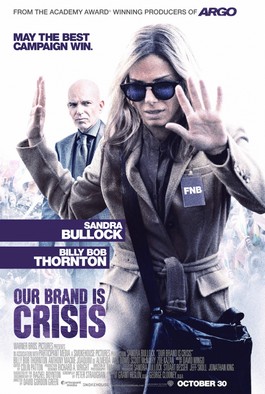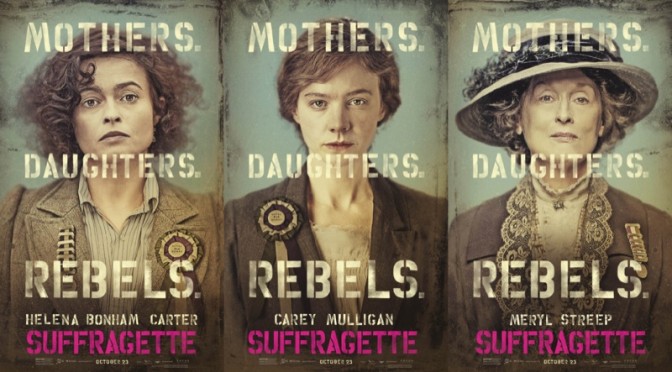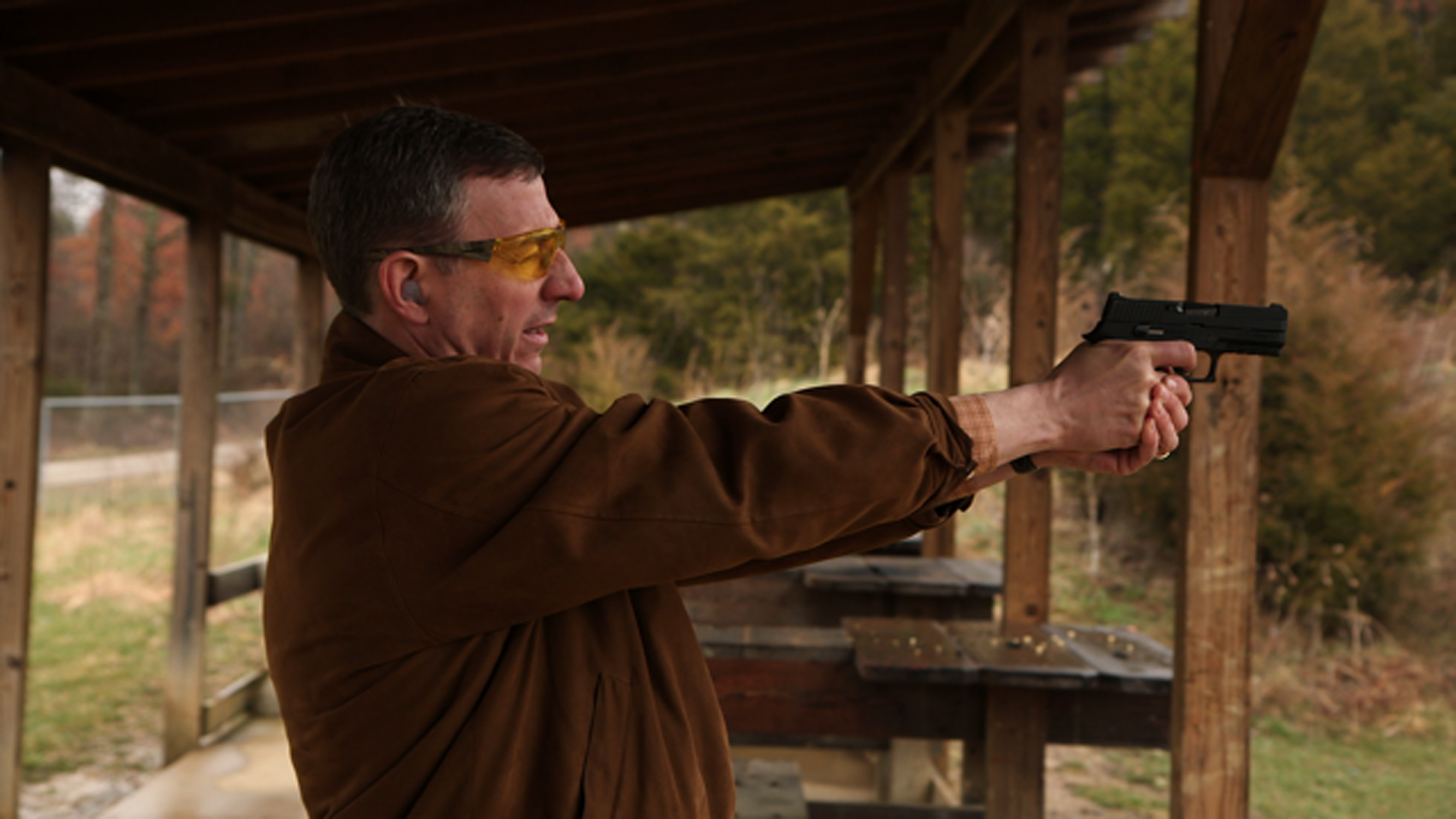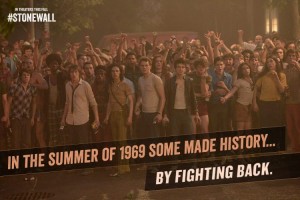Our Brand is Crisis
Posted on October 29, 2015 at 5:38 pm
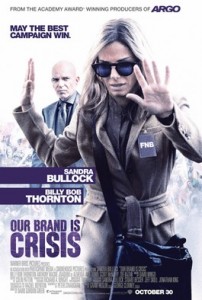
As we gear up for one of the most improbable and even outlandish Presidential campaigns in US history, we get a movie based on a real-life Presidential campaign in Bolivia, with imported American political consultants transplanting the media-savvy, scorched-earth, mud-slinging “expertise” that won elections in the US. What could go wrong?
The name of the film is “Our Brand is Crisis,” also the name of the 2006 documentary about what happened when James Carville, an architect of the Clinton campaign, went to Bolivia with his group of consultants and strategists to help elect the Bolivian-born, American-raised Gonzalo Sánchez de Lozada. Actually they went to help re-elect him. He had served as President from 1993-97. He was trying to regain the Presidency, and who better to help than the team who helped the young governor of Arkansas beat a sitting President, George H.W. Bush?
Sandra Bullock, taking a part based on Carville and originally written for George Clooney, plays a consultant known as “Calamity” Jane. She is burned out and living in a remote rural area when she gets a visit from two former colleagues.
Nell (Ann Dowd) and Ben (Anthony Mackie) want her for two reasons. First, she is good at what she does. Second, she is “disposable, expendable, and deniable.” If their candidate (named Castillo in this film and played by Joaquim de Almeida) wins, they get the glory. If he loses, they can blame “Calamity” Jane. Win win, and a good introduction to the small-p politics of the world of strategists and consultants who work on campaigns.
Jane is not interested, even though she needs the money, until she learns that Castillo’s opponent is being advised by her arch rival, Pat Candy (Billy Bob Thornton), a man who has been on the other side “three or four times” and beaten her “three or four times.” Much more interested in trouncing anyone Candy is advising than in any of the issues or the quality of the candidates, she agrees to fly to Bolivia, where she spends the first few days breathing oxygen from a tank and throwing up due to the altitude.
Finally she begins to wake up and her fiercely competitive spirit takes over. She brings in a secret weapon, a young woman with crackerjack online research skills known only as LeBlanc (Zoe Kazan), a sort of Lisbeth Salander who looks like a sophomore at Yale. And she starts barking orders, telling her candidate to take off his jacket and roll up his sleeves and to turn toward the camera if he feels a tear in his eye. “We are the syringe that injects the people’s voice into your campaign,” she barks. He is so far behind in the polls that he has no alternative.
Jane’s short-term goal: to humanize her candidate, who is seen by the electorate as imperious and out of touch. Her medium term goal: to persuade the electorate that there is a crisis and only his experienced hand can guide them through. Her ultimate goal: complete annihilation of Pat Candy, with a side order of public humiliation.
The political sophistication of the screenplay is below the level of an AP history class, with a lot of scorched earth posturing and the inevitable idealistic youngster to provide contrast to all the superficial cynics. A reference to Adam Smith’s theory of the invisible hand is there for a gloss of political sophistication, but the aphorisms are tired (“If you fight with monsters for too long, you become a monster”) and the film is almost as cynical as its characters. The reason to see it is Bullock, who gives one of the best performances of the year, as complex, nuanced, savvy, and honest as the film would like to be. She’s got my vote.
Parents should know that this film includes very strong and crude language, vulgar sexual references, smoking, drinking, and some violence including riots, tear gas, and guns.
Family discussion: Why did Jane take the job? What will she do next?
If you like this, try: the documentary of the same name that inspired this film and “No,” starring Gael Garcia Bernal, based on the 1988 election in Chile

